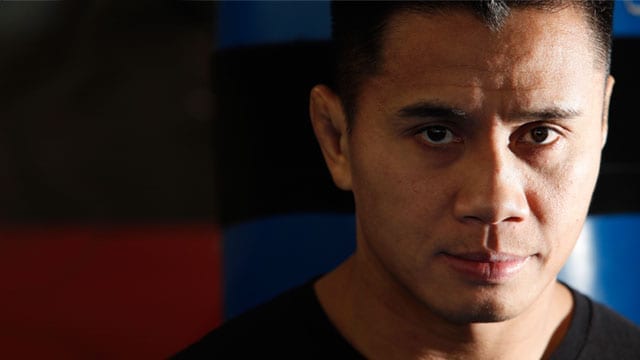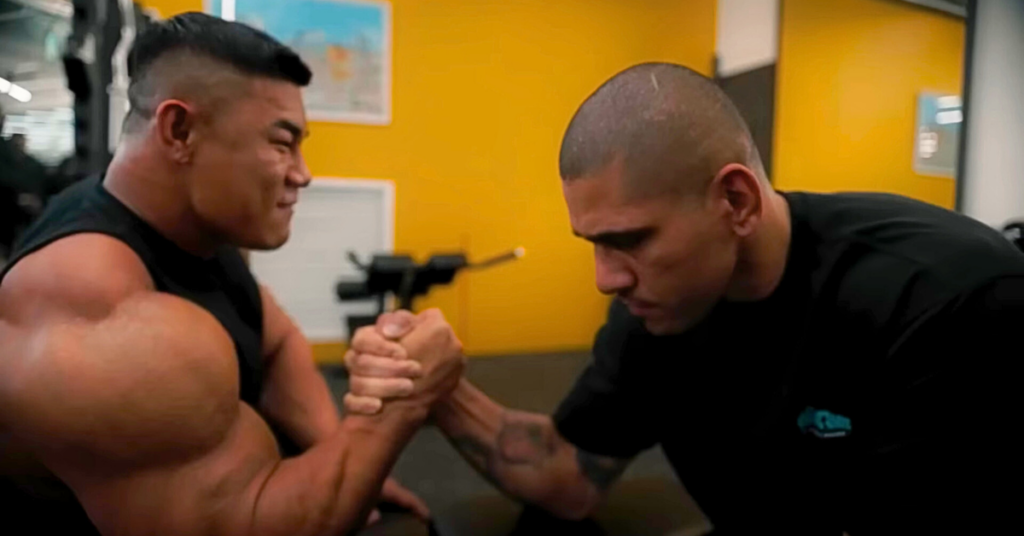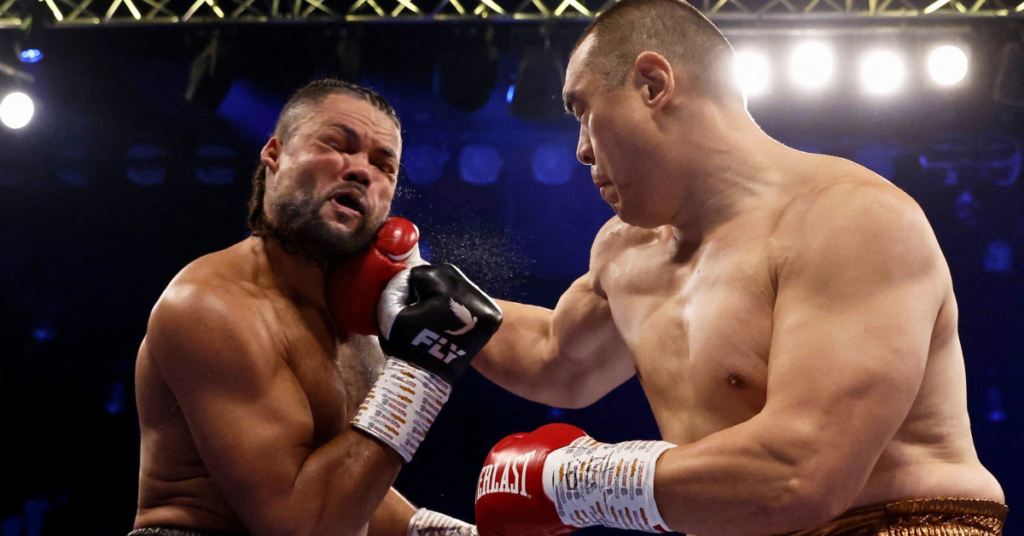UFC Rescinds Cung Le’s Suspension For HGH

Former Strikeforce champion and UFC middleweight Cung Le suffered a one-sided beating at the hands of Michael “The Count” Bisping at August 23’s UFC Fight Night 48 from Macau (watch fight here), succumbing to a fourth round TKO that left Le bloody and battered in the octagon.
The disgraced fighter soon found that his troubles were far from over, however, as Le failed the post-fight drug test for elevated levels of human growth hormone (HGH), earning a nine-month suspension and putting the his fighting future seriously in jeopardy.
Bisping had requested and received enhanced drug testing for himself and Le after witnessing a photo of Le looking especially ripped surfaced online. After a long history of facing fighters with patterns of performance enhancing drug use, Bisping was understandably cautious about the 42-year-old fighter’s auspiciously jacked physique.
Bisping was glad to win the fight against the “cheating” Le, but the debate was far from over.
Le claimed that the drug testing, which was regulated by the UFC itself since no athletic commission was in place in Macau, was unreliable as it was administered to him directly after the bout while his body was still revved up and in fight mode. He was confident in his appeal, and apparently he was correct in his assumptions.
Tonight (Tues., October 21, 2014) the UFC rescinded Le’s suspension, citing an unreliable test as the reason. Here is the full statement that Zuffa released tonight on UFC.com:
At UFC Fight Night Macao on August 23rd, UFC contracted with an independent drug testing laboratory in Hong Kong to perform urinalysis testing on all fighters on the card. Additionally, UFC requested the laboratory to test blood samples from 4 fighters for human growth hormone (HGH), erythropoietin (EPO) and testosterone.
One of the athletes who had his blood tested was Cung Le. The laboratory results from Le’s blood test were sent to the UFC and showed that his blood had a total HGH level outside the reference range. Based on such results, UFC officials determined that Le had violated his promotional agreement and the UFC Fighter Conduct Policy. Consequently, UFC decided that Le should be suspended from unarmed combat competition for 12 months.
Following the announcement of Le’s suspension, UFC officials have been provided with medical advice regarding the elevated total HGH present in Le’s system. In accordance with such medical advice, UFC has determined that Le’s elevated total HGH by itself does not prove that he took performance-enhancing drugs before the August 23rd bout. As a result, UFC has informed Le that his suspension is rescinded.
Le had requested an appeal of his suspension, and was entitled to arbitrate the drug test results and suspension. However, based on the lack of conclusive laboratory results, UFC officials deemed it appropriate to immediately rescind the suspension without the need for further proceedings.
The UFC organization has always been a leader when it comes to testing for performance-enhancing drugs in combat sports. All UFC athletes know they are subject to drug testing by an applicable state athletic commission, an international governing federation, or by an independent laboratory contracted by the UFC when no regulatory body is overseeing the event. In those cases where regulatory oversight is unavailable, UFC voluntarily chooses to adhere to the highest level of athlete health and safety protocols similar to if the event were being held in the state of Nevada.
The promotion claimed that they had since found medical evidence that testing a fighter’s blood right after a fight when the levels of HGH were heightened made it unreliable, and that probably makes sense from a scientific standard.
But as the UFC transitions toward implementing random drug testing in an effort to clean up the sport of MMA, there are going to be mistakes and hindrances along the way. Le may have got a way with one here. I’m not saying he did; all I’m saying is that he’s simply garnered a ton of criticism lately for repeatedly posting pictures of himself looking in the best shape of his life.
That usually doesn’t happen when a fighter passes 40 years old, and while Le has claimed it was his diet and workout regimen are what made his fitness increase so much, it’s also worth noting that he took almost two years off from fighting while getting that ridiculously ripped.
That’s an odd coincidence. Either way, Le knows what kind of increased testing he’s going to be dealing with now, and he’d be a fool to show up dirty to his next UFC fight, if he has one. He is obviously planning to because he was set to fight his suspension with a now-unnecessary appeal.
What do you think? Did Le get away with using HGH just because the UFC didn’t know how to properly regulate increased testing, or were there faulty methods the reason for his failed test?






